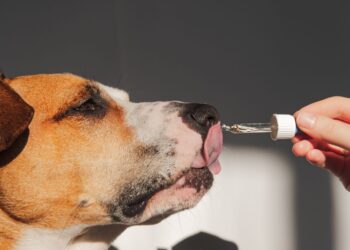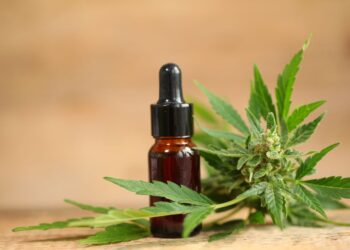Buying a car that’s been in a crash might seem like a risky move, but for the right buyer, crash damaged cars for sale represent one of the most cost-effective ways to get on the road. These vehicles are often sold at heavily discounted prices, offering incredible value—especially for buyers who are handy, resourceful, or simply looking for a solid deal.
Whether you’re a DIY enthusiast looking for your next project or someone hunting for a budget-friendly vehicle, understanding how to evaluate and purchase crash damaged cars can open up a world of opportunity. In this guide, we’ll walk through how to buy safely, what to watch out for, and the key advantages that make crash damaged vehicles an underrated gem in the automotive world.
Understanding Crash Damage
When a car is involved in an accident, the severity of the damage determines how it’s classified. In many cases, the car is labeled a “total loss” by an insurance company if the repair costs exceed a certain percentage (usually 70–80%) of the vehicle’s market value. From there, the vehicle is issued a salvage title and often sold at auction.
Crash damage can range from:
- Cosmetic damage (scratches, dents, broken lights)
- Airbag deployment
- Front-end or rear-end collision impact
- Frame or suspension issues
- Windshield and window breakage
- Electrical or mechanical faults
Not all of these render a vehicle unsafe or unrepairable. In fact, many crash damaged cars can be restored to full roadworthiness at a much lower cost than purchasing a traditional used car.
Where to Find Crash Damaged Cars for Sale
If you’re looking to buy, start with these common sources:
- Online salvage auctions – These include large platforms where vehicles from insurance companies, rental fleets, or repossessions are listed.
- Insurance auction sites – Cars totaled by insurance companies are sold directly to the public or through licensed brokers.
- Salvage yards – Some allow buyers to view and bid on cars in person.
- Classified ads – Individual sellers sometimes offer crash-damaged cars directly, often at low prices.
- Licensed rebuilders – These sellers repair crash-damaged vehicles and sell them with rebuilt titles.
Some auctions require you to use a broker to place bids. Services like iaa brokers can help navigate restricted-access listings.
Why Consider a Crash Damaged Car?
Here are the main reasons people buy these vehicles:
1. Significant Savings
Crash damaged cars for sale often cost 40–60% less than similar models with clean titles.
2. DIY-Friendly Repairs
If you’re handy with tools or know a mechanic, many crash-damaged vehicles can be restored affordably.

3. Access to Better Models
You might be able to afford a newer model or higher trim level than you could otherwise.
4. Environmental Impact
Restoring a crash-damaged car keeps it out of the junkyard and lowers demand for new manufacturing.
What to Look for Before Purchasing
- Severity of the damage – Minor dings or cosmetic issues are easy to fix.
- Location of damage – Side panels or bumpers are easier to replace than roof pillars or chassis components.
- Availability of parts – Make sure replacement parts are readily available and reasonably priced.
- Estimated repair cost – Always calculate what it’ll take to make the vehicle roadworthy again.
- Inspection report – Review details about damage location, type, and extent.
- Vehicle history report – Use VIN check services to verify accident records and ownership history.
Understanding Title Types
- Salvage title – Vehicle is not road legal until repaired and inspected.
- Rebuilt title – Salvage vehicle that has passed inspection and can be registered and insured.
- Clean title (with prior damage) – Some minor crash damage may not result in a salvage declaration.
Common Repairs and Costs
Common repairs include:
- Replacing bumpers and fenders
- Fixing headlights or taillights
- Radiator or condenser repair
- Airbag replacement
- Suspension alignment
- Repainting
- Windshield replacement
Labor and parts costs will depend on your region and the type of car.
Insurance and Financing Considerations
Insurance
Most insurers will offer liability for rebuilt cars, but collision and comprehensive coverage may be limited or more expensive. Compare providers and ask for quotes in advance.
Financing
Financing can be challenging. Some lenders won’t finance salvage or rebuilt title cars, or may require a larger down payment.

Many buyers opt to pay in cash.
Who Should Buy Crash Damaged Cars?
Perfect for:
- DIYers and mechanics
- Budget-conscious families
- First-time car buyers
- Flippers and resellers
- People needing a second vehicle
- Eco-minded consumers
Who Should Avoid Them?
Not recommended for:
- Buyers who want full warranties
- People with no access to repair shops
- Those planning quick resale
- Buyers in areas where rebuilt titles are hard to insure or register
Tips for a Smart Purchase
- Set a budget – Include repair costs and leave room for surprises.
- Use VIN check tools – Avoid flood-damaged or stolen vehicles.
- Get before-and-after photos – Transparency shows quality.
- Hire a mechanic – If you’re unsure, get an expert to assess it.
- Know resale values – Rebuilt cars sell for less, so factor that in.
Final Thoughts
Crash damaged cars for sale can be a smart, affordable path to vehicle ownership—especially in today’s high-cost auto market. By doing your research, setting a clear budget, and understanding what makes a deal worthwhile, you can end up with a reliable ride at a fraction of the cost.
Whether you’re buying for yourself, for a family member, or for resale, taking a chance on a crash damaged car could be one of the most rewarding financial decisions you make on four wheels.












































































































